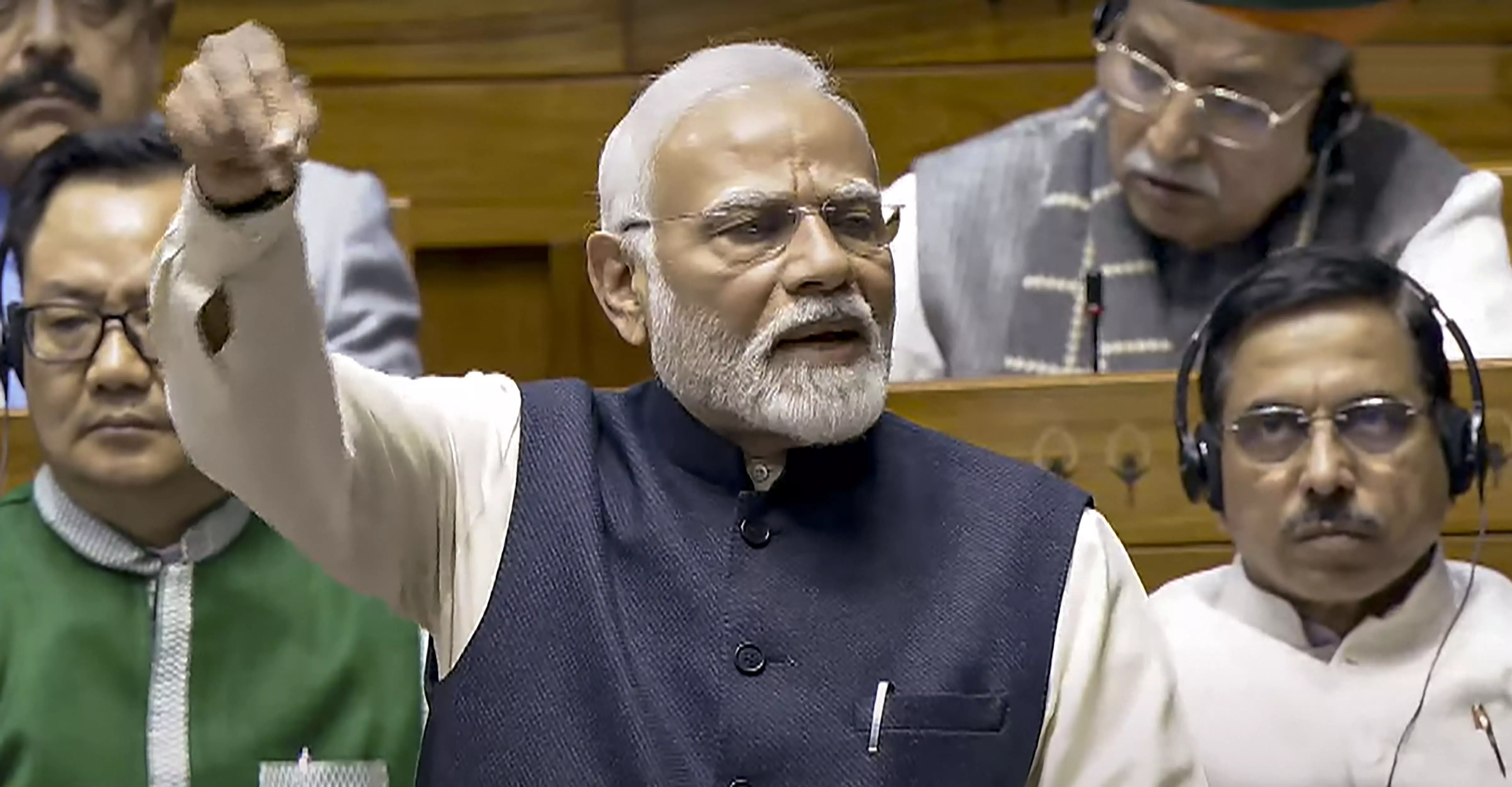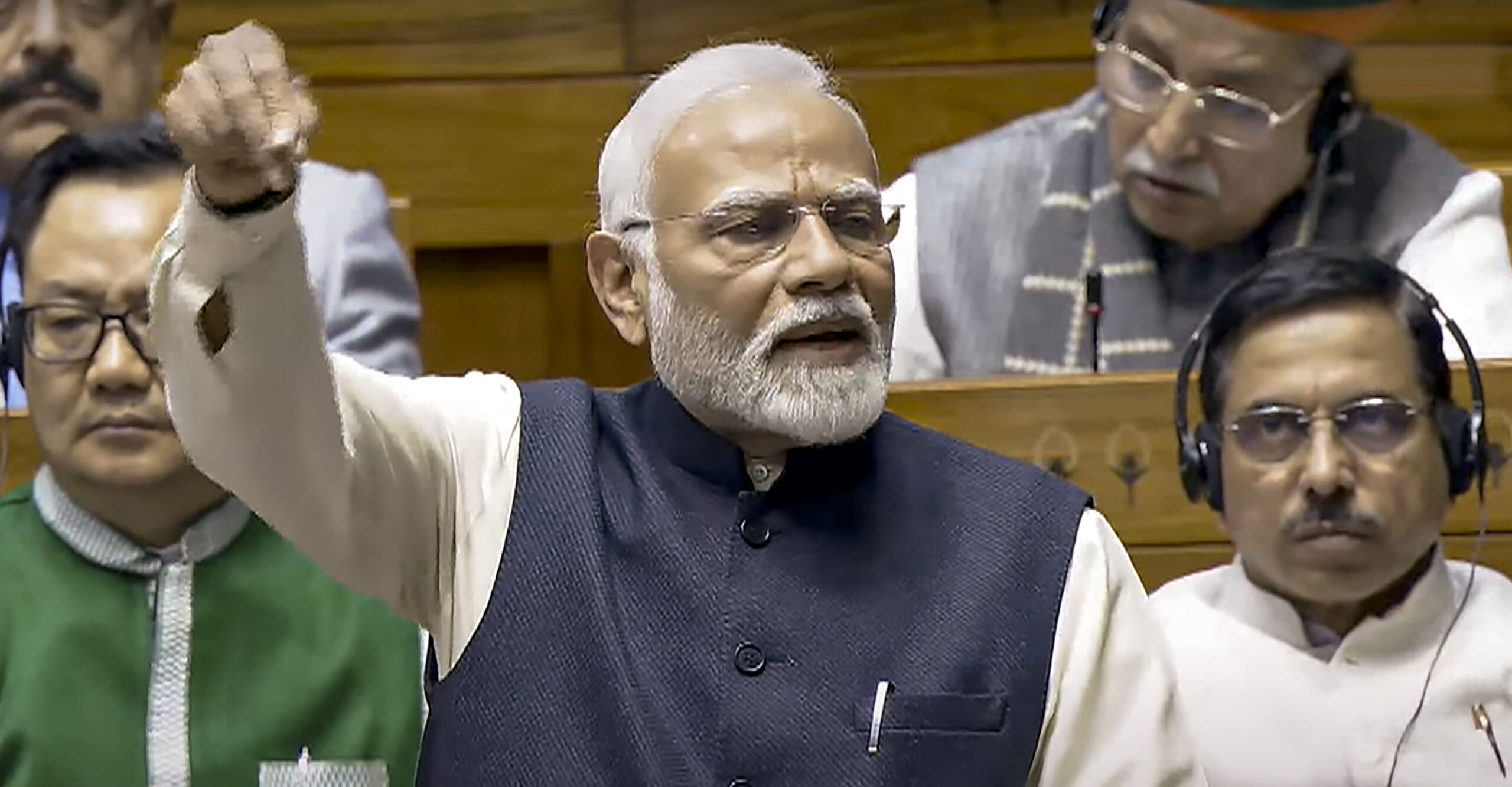
Reversing the inexorable advance towards centralisation of executive power, programmes and election schedules reflected in the Narendra Modi 0.3 government’s rush to get legislative approval for the “One Nation-One Election” blueprint appears impossible. Stick as it might in the gullets of the anti-BJP Opposition and a scattering of voices, mostly muffled, within the ruling NDA, the proposed bill amending the Constitution will be approved by a tame Parliament that has learnt to submit to the will of the executive in the person of the Prime Minister, who claims a direct connection to both God and to the Hindu majority, bypassing the diversity of religious minorities, especially Muslims.
By using the BJP-led Mahayuti coalition in the recent Maharashtra election and the party’s third-term win in Haryana, the Modi government has effectively overcome the numbers deficit of the Lok Sabha 2024 election. The fact that the BJP doesn’t have a majority on its own strength and therefore doesn’t have the mandate to bring in a paradigm-shifting constitutional legislation like the One Nation-One Election proposed bill is a piece of irrelevant quibbling.
It is in this context that Mamata Banerjee’s difficult to refuse offer to lead the anti-BJP INDIA bloc, which is in considerable disarray is, for now, a loser’s gambit: as a better late than never move. The responsibility of the INDIA bloc’s dismal performance after the 2024 Lok Sabha election, in which it won 238 seats versus the 240 seats won by the BJP and the NDA’s 293 seats of the total 543 seats lies with the Congress. It failed miserably in Haryana, snatching defeat from anticipated victory; it failed in J&K and in Maharashtra by under-performing and it failed to sustain the momentum the INDIA bloc picked up during the Lok Sabha election. The point that the Congress and INDIA bloc should have acted on was the wide gap between the Congress’ tally and the BJP’s; it didn’t and neither did the INDIA bloc, preferring to squabble over seat-sharing, instead of realizing that its hold on voter imagination and support was tenuous.
As the Prime Minister claims, his “Ek Hain to Safe Hain” mantra resonated with Maharashtra’s voters, giving him the plausibility he lost in the Lok Sabha election just six months earlier. He and the BJP’s social media activists, as well as those of the RSS and the wider Sangh Parivar, have been hard at work covering up the BJP’s failures in Jharkhand and J&K Assembly polls, by pointing out that the BJP has won in Maharashtra and in byelections to 48 Assembly seats, where it won 28.
Voter confidence in a squabbling coalition is never high; the acceptability on which winnability is dependent of the parties of the coalition squabbling also tends to drop. There was the fact that as a result of the BJP-engineered splits, the Sharad Pawar-founded NCP and the Shiv Sena led by Uddhav Thackeray were limping. By adding the incomprehensible focus by the Congress on the Adani Group’s alleged misdoings, aided and abetted by the Narendra Modi government, the INDIA bloc and the Maha Vikas Aghadi’s credibility as an alternative were unappealing.
The need to come back again and again to why the losses in Haryana and Maharashtra were damaging to the INDIA bloc’s effectiveness in Parliament and in national politics is necessary, never more so than now when the Modi government, armed with a mandate from the election results in these two states, prepares to change the basic structure of India’s politics.
The One Nation-One Election is an unequivocal declaration of the supremacy of the executive over the legislature, where the judiciary can go take a walk. It is a reordering that cements a hierarchy between the Centre and the states, upending the uniquely federal structure that the Constitution established. The One Nation-One Election arrangement will prioritise the schedule for elections determined by the Centre over that of the states. The draft proposal said as much by working out what would happen to elected state governments that were midway through their five-year terms as and when the next Lok Sabha election was called. It laid down details of what would happen should an elected state government lose its majority. It specified that fresh elections to let the people decide would not be allowed under the One Nation-One Election template.
There is no way that the INDIA bloc in Parliament can stop the BJP and the Modi government, armed with its new and in this context irrelevant mandate from the Maharashtra and Haryana state elections, from passing the bill on One Nation-One Election. The Congress failed to anticipate that it needed to lead the coalition and create the pressure necessary to stall for time over this legislation that every political party knew was going to happen. The Congress, by failing to win in the two states and win significant seats in the 48 byelections, has to own up to its entirely irresponsible actions of allowing Rahul Gandhi’s obsession over the alleged nexus between the Adani Group and Narendra Modi to supersede the larger responsibility it needed to fulfil in leading the INDIA bloc and strengthening the opposition against the BJP.
Whereas the regional parties need bifocals or progressives to see clearly where India’s politics is headed, the intractably myopic view of most regional parties, including Mamata Banerjee and her Trinamul Congress, is also responsible for the triumphant progress of the subversion of the basic structure of the Indian State as established by the Constitution in which the executive, the legislature and the judiciary maintain a balance and keep each other in check, on the one hand, and the constituent states of the Union have the freedom to conduct their politics on their own terms and as per their schedules, so long as whatever they do is permissible under the Constitution.
There was never any confusion about the nature of the Indian State that the BJP wanted; its political DNA drives it towards centralisation and hierarchy and laying down the law by which the most insignificant of pracharaks and karyakartas function. Armed with this mindset, a centralising constitutional legislation is the obvious outcome. With a vote share of 36.7 per cent for the INDIA bloc against the 43.6 per cent vote share of the NDA, the collective of leaders of the opposition have a duty to voters to represent their aspirations and their interests. By succumbing to the counter-pressure of the BJP and failing to fight back, the INDIA bloc has enabled the Modi government to centralise power and turn the structure of representative democracy upside down.
